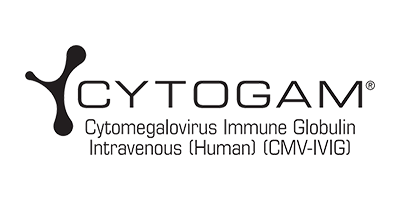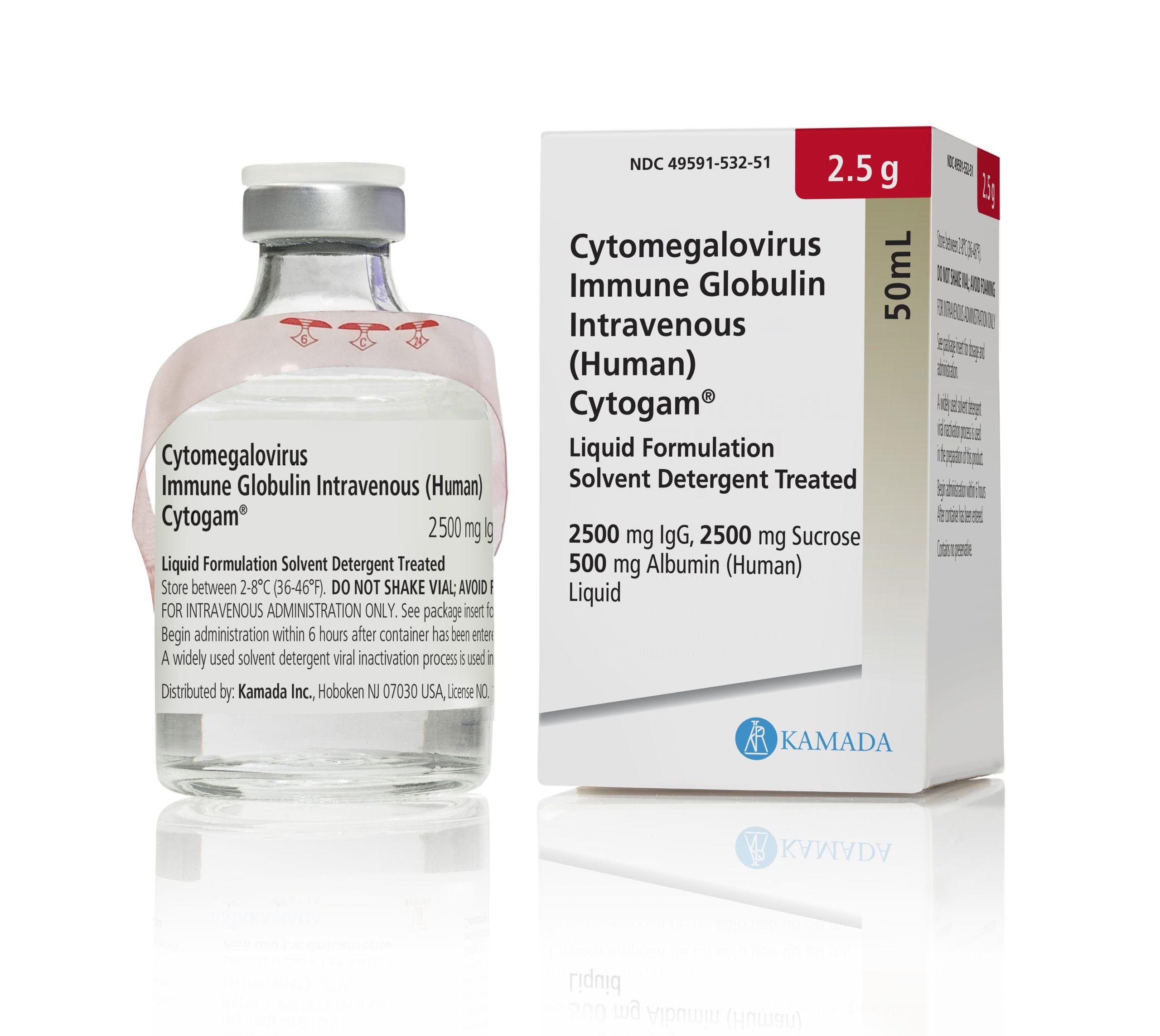Cytogam® is an intravenous immunoglobulin containing standardized amount of antibody to cytomegalovirus. It is indicated for the prophylaxis of cytomegalovirus disease associated with transplantation of kidney, lung, liver, pancreas and heart. In transplants of these organs other than kidney from CMV seropositive donors into seronegative recipients, prophylactic CMV-IGIV should be considered in combination with ganciclovir.
Important Safety Information:
Cytogam® is contraindicated in individuals with a history of a prior severe reaction associated with the administration of this or other human immunoglobulin preparations. Persons with selective immunoglobulin A deficiency have the potential for developing antibodies to immunoglobulin A and could have anaphylactic reactions to subsequent administration of blood products that contain immunoglobulin A, including Cytogam®.
Immune Globulin Intravenous (Human) products have been reported to be associated with renal dysfunction, acute renal failure, osmotic nephrosis, and death. Patients predisposed to acute renal failure include patients with any degree of preexisting renal insufficiency, diabetes mellitus, age greater than 65, volume depletion, sepsis, paraproteinemia, or patients receiving known nephrotoxic drugs. Especially in such patients, IGIV products should be administered at the minimum concentrations available and the minimum rate of infusion practicable. Those containing sucrose as a stabilizer, like Cytogam, account for a disproportionate share of the total number of reports of renal dysfunction and acute renal failure when given at daily doses of 350 mg/kg or greater.
During administration, the patient’s vital signs should be monitored continuously, and careful observation made for any symptoms throughout the infusion. Epinephrine and diphenhydramine should be available for the treatment of acute and anaphylactic reactions.
Increases in serum creatinine and blood urea nitrogen (BUN) have been observed as soon as one to two days following IGIV infusion. Progression to oliguria or anuria requiring dialysis has been observed.
Immune Globulin Intravenous (Human) products can contain blood group antibodies which may act as hemolysins and induce in vivo coating of red blood cells with immunoglobulin, causing a positive direct antiglobulin reaction and, rarely, hemolysis.
Thrombotic events have been reported in association with IGIV. Patients at risk may include those with a history of atherosclerosis, multiple cardiovascular risk factors, advanced age, impaired cardiac output, and/or known or suspected hyperviscosity. The potential risks and benefits of IGIV should be weighed against those of alternative therapies for all patients for whom IGIV administration is being considered. Baseline assessment of blood viscosity should be considered in patients at risk for hyperviscosity, including those with cryoglobulins, fasting chylomicronemia/markedly high triacylglycerols (triglycerides), or monoclonal gammopathies.
Cytogam® is derived from human plasma. As with all plasma-derived products, the risk of transmission of infectious agents, including viruses and, theoretically, the Creutzfeldt-Jakob disease (CJD) agent, cannot be completely eliminated.
Minor reactions, such as flushing, chills, muscle cramps, back pain, fever, nausea, vomiting, arthralgia, and wheezing, were the most frequent adverse reactions observed during the clinical trials for Cytogam.
Please see full Prescribing Information for full prescribing details.
To report SUSPECTED ADVERSE REACTIONS, contact Kamada at pharmacovigilance@kamada.com or 1-(866)-916-0077 or FDA at 1-800-FDA-1088 or www.fda.gov/medwatch.

